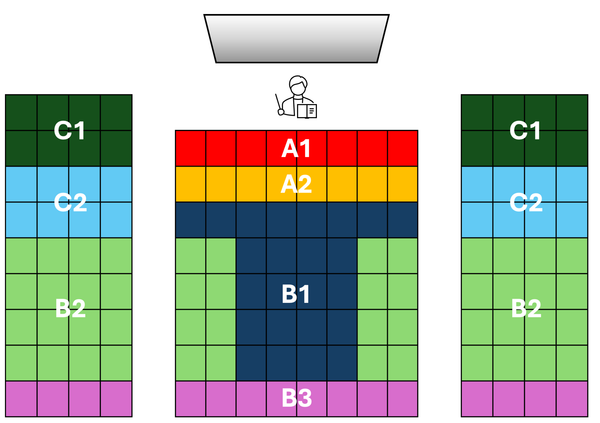Why I can no longer be a woman in STEM
Academic success is something that is measured quantitatively. This soothes our constant search for a material scale of self-worth in a life that lends itself to qualitative description. Though some may settle with the title of academic and the pursuit of knowledge generally, of knowing what has previously been known and written, others require something more substantial to dine upon – this is oftentimes satiated by innovation and scientific knowledge.
It is not a novel statement or a radical observation to point out that technology, engineering, and the natural sciences are not fields saturated with women. It is only logical that women should be heavily praised, then, for pursuing the field, and heavily encouraged to do so. The only way to counteract systemic underrepresentation is to lure women into institutions. The quotas are not delivered in anecdotes and success stories, but statistics and numbers.
On this note, I am going to deliver a personal anecdote. This seems fittingly ironic for the title of this piece.
When I was in my late adolescence, I was desperate to be perceived as intelligent. Whether this was due to the way society treats and approaches women, and grooms women with academic potential, is up for debate. Unlike many students at academically rigorous, highly selective institutions, I do not believe I was ever “the best”. I have listened to many individuals make broad statements such as “well, we were all the best in school, we were all used to being top of the class,” that I quietly did not resonate with and was too afraid to correct. This is not a criticism to those who were top of the class; it is just to point out that I was not, and I am comfortable now with that fact.
I am unsure whether the fact that my lack of great academic success in my later years is due to a lack of natural ability or a lack of effort. I am aware, and have been told, that had I attended another, less demanding institution, I probably would have numerically thrived. It is not a bad thing to admit there are people around me with more mathematical skill, “quickness”, and numerical intelligence. I do not feel the desire to take and spread the score of an intelligence quotient or aptitude test. If I were to find out I am only slightly above the average, that would be okay. As a woman, I feel the need to now tell you not to assume that this is the case.
I am not denying a lack of effort. I did not, and do not, enjoy studying the natural sciences, and so I do not dedicate myself by any means like some of my peers do. The lack of joy I have for the subject, the struggle, and the anticipation of failure, fills me an anxiety-induced nausea that I heal with avoidance, distraction, and intoxication. My indolence is a product of my fear.
Deciding to pursue a subject in the STEM field was viewed as breaking away from the bell curve. This was a decision that was met with much praise and also much criticism. I was aware that I was a volatile daughter, and the perfect son. I feel that the outward expectation and pressure of being “good for women”, gifted to me by teachers and peers, motivated me in my adolescence. But, in my young adulthood, I could only view my lack of drive and success and being “bad for women.” I was tentative and avoidant at even considering switching fields for this reason.
When I chose to finally leave the field, and pursue the study of law, instead, I was forced to confront the environment I had been breathing. Why I did not pursue law in the past is simply down to my fear of rejection in a highly selective field, and that STEM misguided me and soothed that insecurity with its open arms. I have conflicting views on most things. The department sympathised with me, despite my indolence, attributing my issues to my family life and being a woman. They were kind for this, yet I was aware they were kind to me in the way that we are kind to children and small animals. My male peers were sometimes not so kind to me at the institution. In an environment where there are not many women, women are very desirable. I am purposeful in my use of “desirable” to avoid any unsavoury words. Men do not like feeling impotent.
That is not to say that in a suffocating habitat, all women should not reap the fruits of their labour. There are ardent, driven women, despite this. They are not women who “just carried on” and “pushed through”. They are similarly acutely aware of their surroundings, and both clinically and emotionally continued. There is no “just” to their academic successes. I feel that these women are forced to be wolves in sheep’s clothing, despite being in a pack of wolves. Should they be wolves, they would be emasculating the other wolves.
I asked my friend, Anubha, who is beginning her doctorate in the field of physics come October, for her experience. I am not sure if I asked altruistically to uphold women, or to medicine my own experience. However, I can candidly say that I experience no jealousy for her accolades, and this is not due to a rejection of my previous desire. I warmly approve of them. I do not think that science is worth any less now that I know I do not want it, and it does not want me.
“I used to think that my experience as a woman in physics had improved from the day I arrived until now, because I have gotten happier in this field as time has gone by,” she told me. “I realised, though, that I was sugar coating it. Being a woman in a male-dominated field involves being a bit of a hypocrite. If I challenged every bit of misogyny I face, there’d be no time for any physics.” This made me laugh; I thought how lovely it would be if I was simply too good at argument to commit to being a mathematician.
“So, I suppose that all that has changed is that I have learned to choose my battles,” she continued. “Maybe this makes me a bad feminist, and I sometimes think it so. There is a grey area between living in blissful ignorance of a major problem, versus spending all of one’s emotional energy trying to change men who do not want to change. The truth is, the misogyny hasn’t really reduced, but I have deceived myself into ignoring it. This makes me sad. It isn’t easy working in a field where many of your peers perceive you as stupid, and always will, and it is even harder to watch the effect this has on myself and other women, historically and now. The historical (and current) exclusion of women, not just from physics but from education entirely, further drives me to stay in spite of it all. It can be really rubbish, but in some way, this brings me closer to my passion for physics – when you are treated badly, sometimes a distraction helps, and for me, this has been the joy of studying it.”
I would like to add, as a humorously telling note, that upon this shrewd, articulate quote, she prefaced that it “might be a bit of a ramble”, and followed with “if you think I’ve like completely missed the tone, let me know and I’ll change it.”










